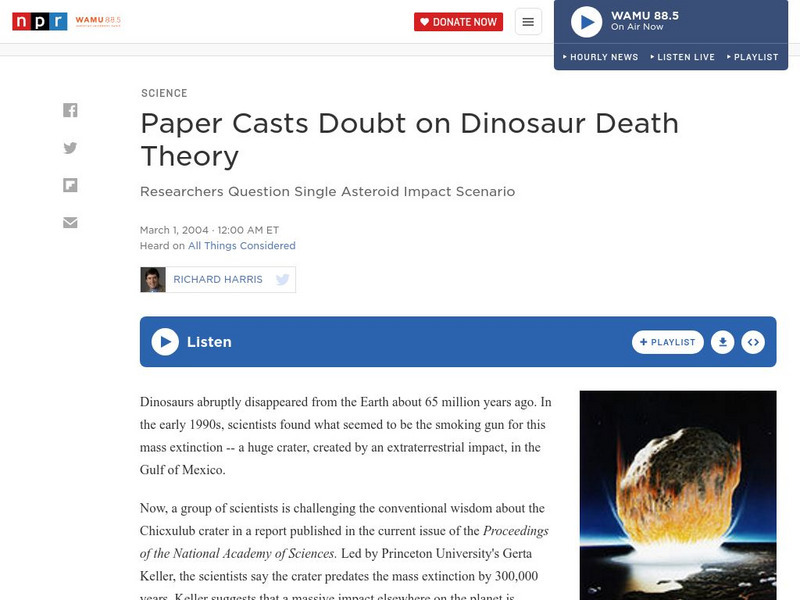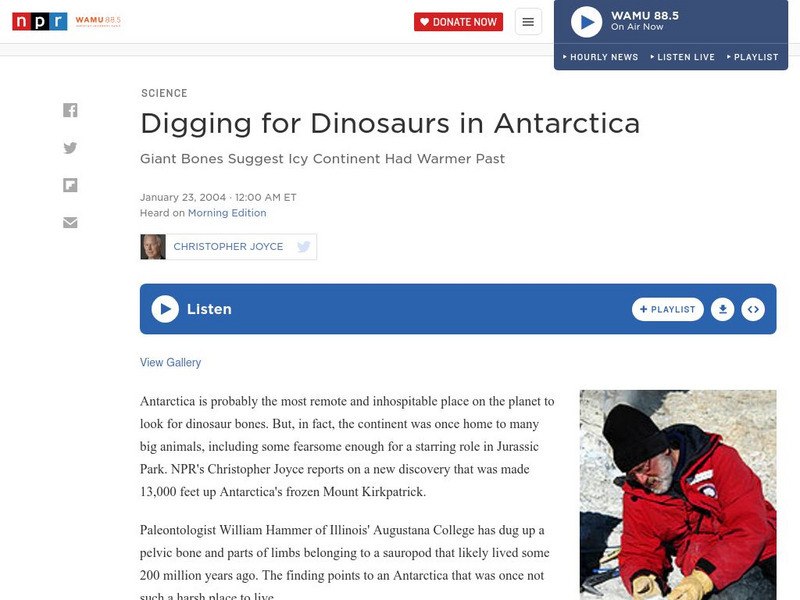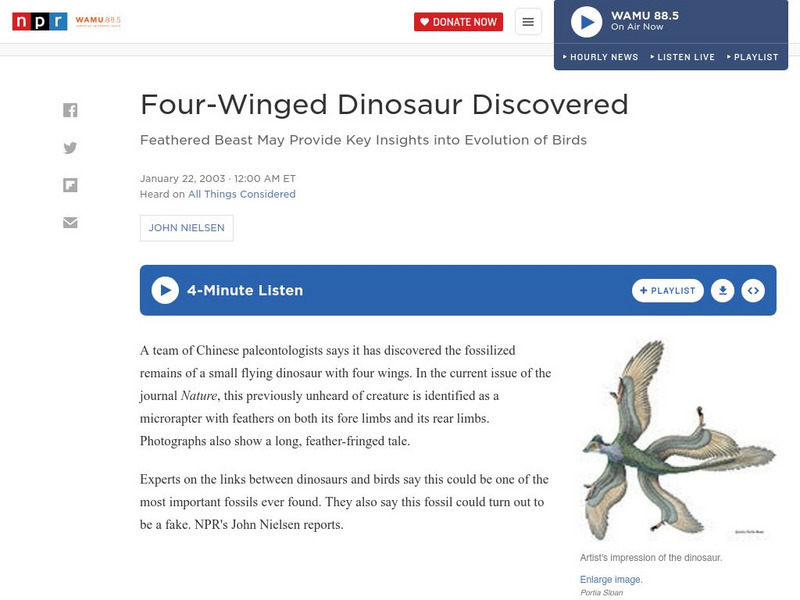PBS
How Dogs (Eventually) Became Our Best Friends
We’re still figuring out the details, but most scientists agree that it took thousands of years of interactions to develop our deep bond with dogs. When did they first become domesticated? Where did this happen? And what did the process...
MinuteEarth
These Countries Are Cheating
By overcounting how much carbon their forests suck up, and undercounting how much carbon their industries release, countries undercount their total carbon emissions.
TED Talks
Spencer Wells: A family tree for humanity
All humans share some common bits of DNA, passed down to us from our African ancestors. Geneticist Spencer Wells talks about how his Genographic Project will use this shared DNA to figure out how we are -- in all our diversity -- truly...
SciShow
Counting Species out of Thin Air
Recent proof-of-concept studies showed that researchers were able to survey animals in an area simply by vacuuming up DNA in the air.
SciShow
SciShow Quiz Show: With WheezyWaiter!
Welcome back to SciShow Quiz Show, where Hank goes head-to-head with Craig Benzine, better known as WheezyWaiter.
TED Talks
Michael Archer: How we'll resurrect the gastric brooding frog, the Tasmanian tiger
The gastric brooding frog lays its eggs just like any other frog -- then swallows them whole to incubate. That is, it did until it went extinct 30 years ago. Paleontologist Michael Archer makes a case to bring back the gastric brooding...
TED-Ed
TED-Ed: The last living members of an extinct species | Jan Stejskal
In the savannahs of Kenya, two female northern white rhinos, Nájin and Fatu, munch contentedly on grass. They are the last two known northern white rhinos left on Earth. Their species is functionally extinct— without a male, they can't...
Wonderscape
On the Brink: The Reality of Endangered and Extinct Species
Delve into the critical issues of endangered and extinct species, understanding the causes and the urgent conservation efforts needed. Biology Terms part 3
Curated Video
Threatened, Endangered, and Extinct
Threatened, Endangered, and Extinct describes the differences between threatened, endangered, and extinct organisms.
AllTime 10s
10 Apocalyptic Natural Disasters That Are Waiting To Happen
You may think they're the stuff of Hollywood, but real disaster on a cinematic scale is just waiting to spring upon unsuspecting populations all over the world. Here are natural disasters that are just waiting to happen'
After Skool
Should We Bring Back Extinct Species?
De-extinction, or resurrection biology, or species revivalism is the process of creating an organism, which is either a member of, or resembles an extinct species, or breeding population of such organisms. Cloning is the most widely...
Wonderscape
Science Kids: Biology Terms
In this video, students will learn about important terms in biology, including the definitions of living and non-living, life cycles, endangered species, and extinct species. The video breaks down these concepts and provides examples to...
Science Friday Initiative
Science Friday: Studying a Baby Mammoth
A 40,000-year-old baby mammoth was discovered frozen in Siberian permafrost in 2007. Most of her body was still intact, allowing paleontologists an unparalleled opportunity to study this extinct animal. Aired May 1, 2009 [12:29]
NPR: National Public Radio
Npr: Peering Inside Fossils
"A scanning device most commonly seen in hospitals is reshaping the science of paleontology by allowing researchers to peer inside irreplaceable fossils without damaging them." Find out what scientists are now able to see that they've...
Khan Academy
Khan Academy: Barnum Brown: The Man Who Discovered Tyrannosaurus Rex
Known as the greatest dinosaur collector of all time, Barnum Brown helped the American Museum of Natural History establish its world-class fossil collection. Museum Researchers recently traced Brown's extraordinary career from a frontier...
NPR: National Public Radio
Npr: Paper Casts Doubt on Dinosaur Death Theory
Some scientists are challenging the conventional wisdom that dinosaurs abruptly disappeared because of a huge crater created by an extraterrestrial impact in the Gulf of Mexico. Find out about this challenge and what they're saying about...
NPR: National Public Radio
Npr: Digging for Dinosaurs in Antarctica
Did dinosaurs once survive on Antarctica, the most remote and inhospitable place on earth? This concise site provides the answer.
NPR: National Public Radio
Npr: Four Winged Dinosaur Discovered
NPR reports on a team of Chinese paleontologists that discovered the fossilized remains of a small flying dinosaur with four wings.
NPR: National Public Radio
Npr: A Guinea Pig the Size of a Horse
This site is provided for by National Public Radio. A seven foot tall rodent that weighs nearly one ton seems like something out of the movies, but researchers have found a skeleton of a rodent the size of a horse. Read about this...







